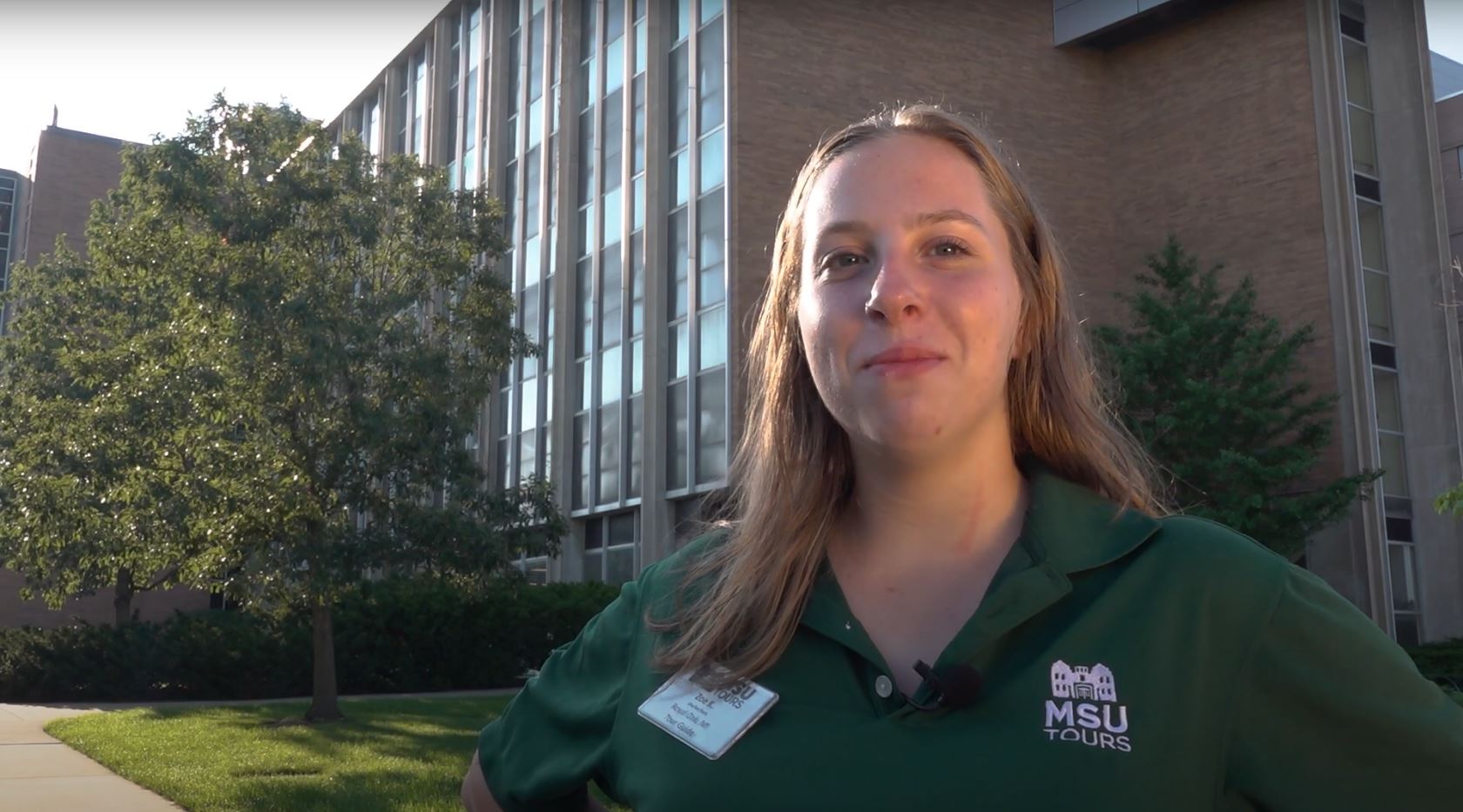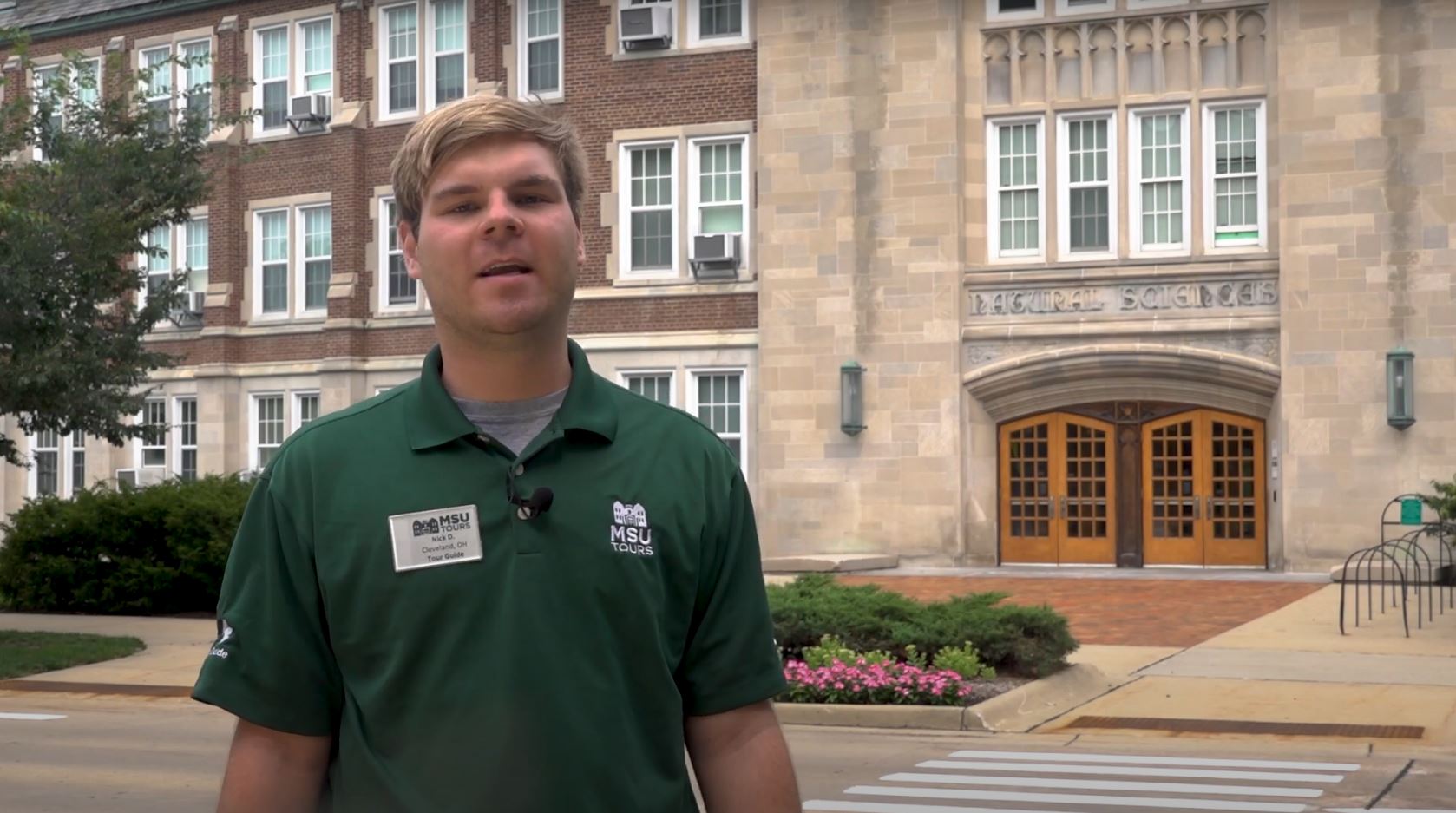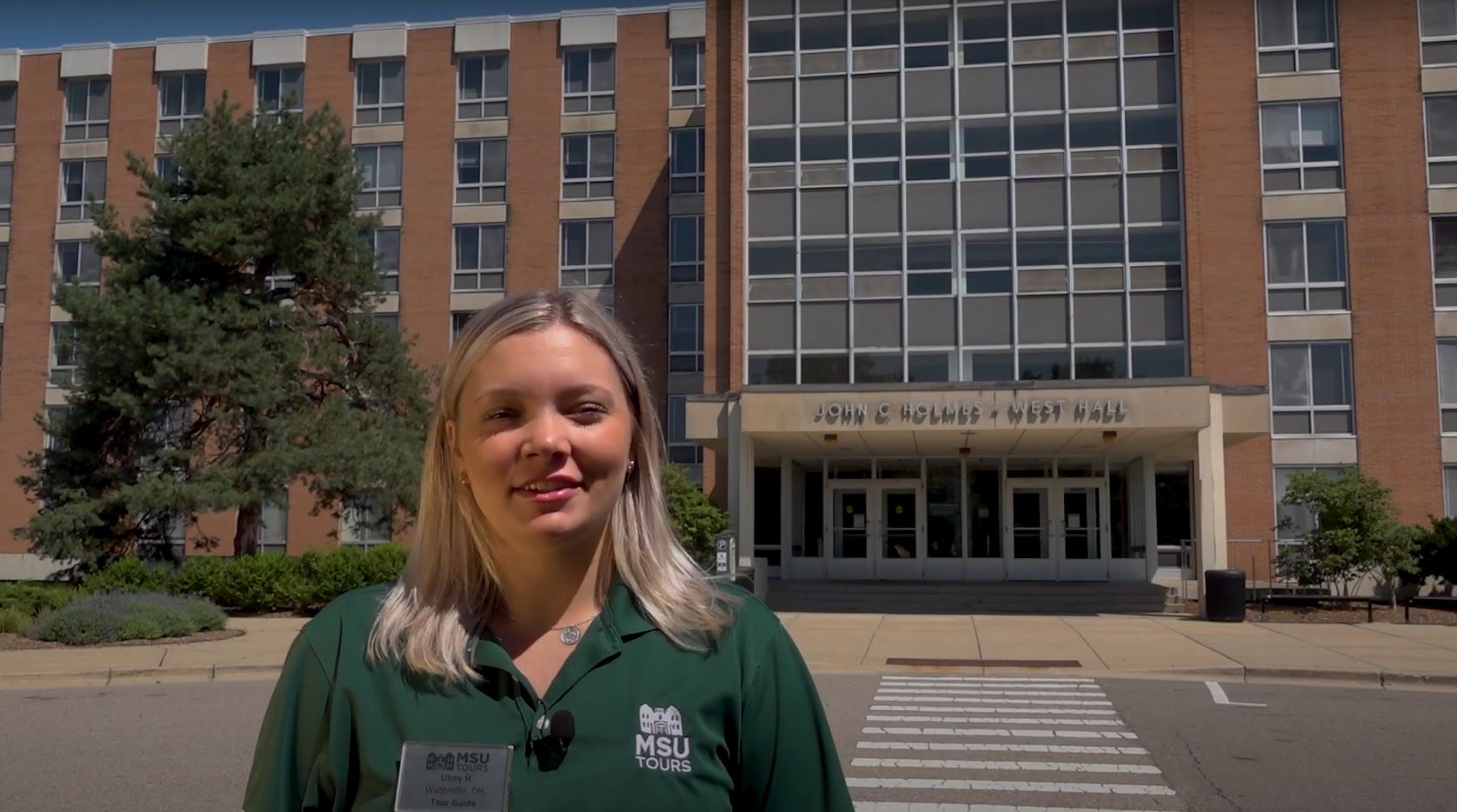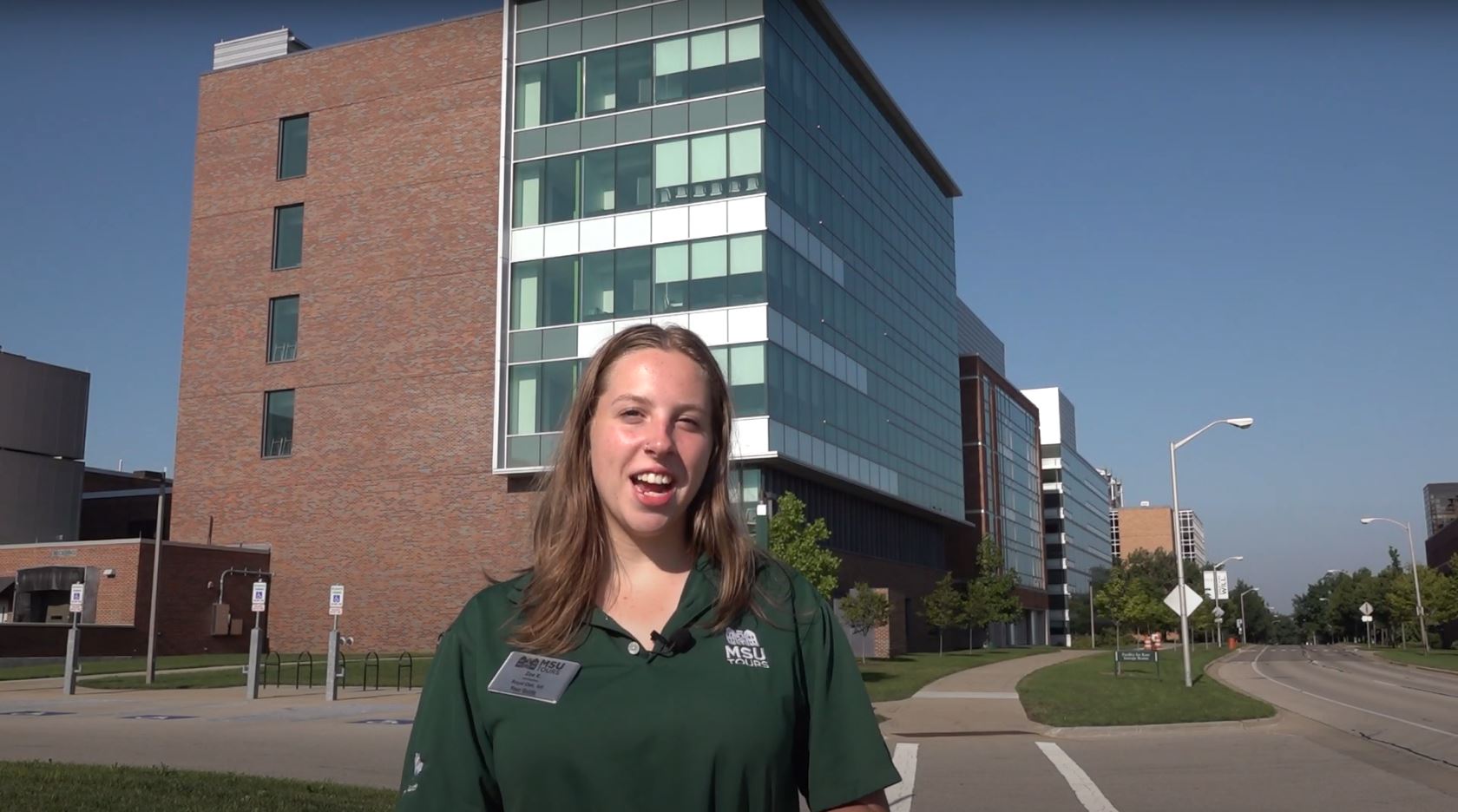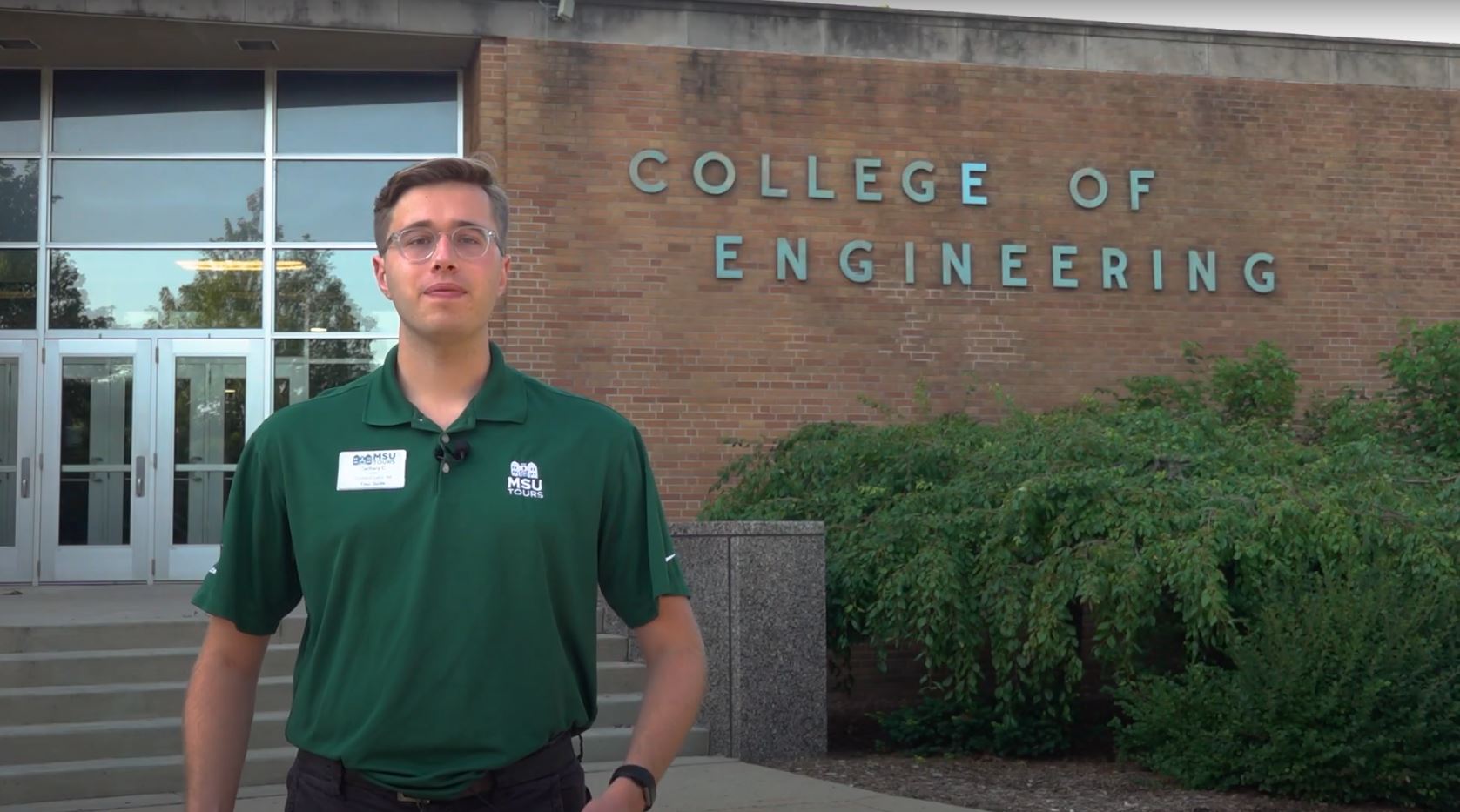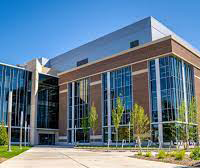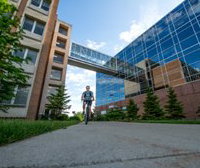
Chemistry Building
Home to a wealth of educational opportunities for graduate and undergraduate students
Home to the Department of Chemistry on campus, the Chemistry Building is a 280,000-square-foot five-floor building right in the center of campus. Approximately 60% of the building is devoted to research laboratories, instrument facilities and supporting shops. Graduate students have 24-hour access to the building, including research laboratories, offices and computer labs.
1964
Year the building was completed, with an expansion in 2005
The Department of Chemistry moved into the building when construction was initially completed in 1964. In 2005, the building received another expansion to enhance educational opportunities for both undergraduate and graduate students. The ability to conduct interdisciplinary research in chemistry and other fields has been increased by the Biomedical and Physical Sciences (BPS) Building, which is connected to the Chemistry and Biochemistry Buildings.
Undergraduate students can pursue either a Bachelor of Science in Chemistry or a Bachelor of Art in Chemistry. Interested students can also check out chemistry study options through Lyman Briggs College, as well.
Connected to chemistry
The ability to carry out interdisciplinary chemistry-related research at MSU has been enhanced by the Biomedical and Physical Sciences (BPS) Building, which abuts and connects to both the Chemistry and Biochemistry Buildings.
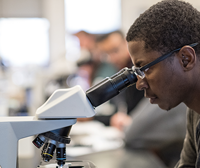
Natural Science Building
Home to hundreds of research opportunities for undergraduate students
Located near North Neighborhood, the College of Natural Science (NatSci) is home to 27 departments and programs in the biological, physical and mathematical sciences. Departments include Cell and Molecular Biology, Chemistry, Plant Research, Statistics and Probability and more. The college averages roughly $57 million in research expenditures annually while also providing world-class educational opportunities to 5,500 undergraduate students and 1,200 graduate and doctoral students. NatSci is a partner with the MSU IQ facility and also offers hundreds of research opportunities for undergraduate students.
27
departments in the College of Natural Science
The building is also home to the Department of Entomology’s Bug House. The MSU Bug House has both pinned and live insects and arthropods. The campus community and the public can schedule tours to learn more about these creatures — and you can even hold live insects as you learn!
Research from day one
There are no prerequisites for undergraduate research, meaning students can begin participating in research at any time.
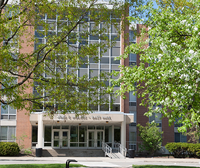
Holmes Hall
Welcome to the largest residence hall on campus, with more than 1,250 residents
Built in 1965 and located in East Neighborhood, Holmes Hall is home to Lyman Briggs College (LBC), one of MSU’s three degree-granting residential colleges. Lyman Briggs is a community of like-minded students pursuing degrees in science-focused areas of study who are interested in biology, chemistry, physics, math, writing and research, and the history, philosophy and sociology of science. The LBC curriculum prepares students to tackle issues locally and globally, with multidisciplinary courses that help students understand theories and practices of scientific reasoning, evidence and knowledge. Students in Lyman Briggs learn from top researchers and innovative teaching faculty.
LBC students have the option to pursue nearly 40 majors in mathematics and the biological, physical, environmental and computational sciences. For students interested in connecting natural and social sciences, LBC also offers a major and minor in History, Philosophy and Sociology of Science. Three other minors in bioethics; entrepreneurship and innovation; and science, technology, environment and public policy are also available. With a post-grad placement rate of 95%, LBC students can be found in public, private or governmental careers, or pursuing post-graduate degrees across the globe.
1967
Year Lyman Briggs was founded
Holmes Hall has classrooms, labs and faculty offices located in the basement and on the first floor. There is a dining hall located right inside the building for students to enjoy, as well as a Sparty’s Café location.
Interested students should list their major of interest as Lyman Briggs when filling out their application.
More to discover
Additional features include a music practice room, TV lounge and meeting spaces.
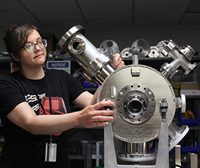
Facility for Rare Isotope Beams (FRIB)
Helping researchers from around the world make important scientific discoveries
Found in the southeast portion of campus along Wilson Road, the Facility for Rare Isotope Beams (FRIB) is a user facility for the Office of Nuclear Physics in the U.S. Department of Energy Office of Science (DOE-SC).
Hosting the most powerful heavy-ion accelerator, FRIB will provide researchers with more than 1,000 new rare isotopes never before produced on earth, enabling scientists to make discoveries about the properties of rare isotopes, nuclear astrophysics, fundamental interactions, and applications for society, including in medicine, homeland security and industry. FRIB produces rare isotopes by accelerating a beam of atomic nuclei to half the speed of light and then smashing it into a thin target material. When the beam impacts the target, the resulting collision creates a number of reaction products, most with fewer protons and neutrons than the stable beam. Among those products are the rare isotopes requested by experimenters. Scientists use detectors to measure their unique properties or interaction with other nuclei. FRIB supports a community of 1,500 scientists from more than 50 countries.
1,500
number of scientific users supported worldwide
DOE-SC selected MSU to design and establish FRIB, following a nationwide competition. MSU has the #1 nuclear physics graduate program in the United States. Training the next generation of scientists at a world-class campus-based DOE-SC user facility is a unique experience and top priority at FRIB. Each year approximately 26% of U.S. nuclear physics graduate students receive part of their training at MSU. FRIB expands on MSU’s practice to involve undergraduate and graduate students in research. FRIB also helps train the next generation accelerator science and engineering workforce, critical to U.S. economic competitiveness, energy security, nuclear security and nonproliferation efforts. In collaboration with the MSU College of Natural Science and the College of Engineering, FRIB attracts the best and brightest students into accelerator science and engineering.
Facility for Rare Isotope Beams (FRIB)
The Facility for Rare Isotope Beams (FRIB) is a U.S. Department of Energy Office of Science user facility for nuclear science. Hosting the most powerful heavy-ion accelerator, FRIB will provide intense beams of rare isotopes (short-lived nuclei not normally found on Earth). FRIB will enable scientists to make discoveries about the properties of these rare isotopes in order to better understand the physics of atomic nuclei, nuclear astrophysics, fundamental interactions, and applications of rare isotopes benefiting society. FRIB will play a vital role in developing the next generation of scientific leaders and innovators.
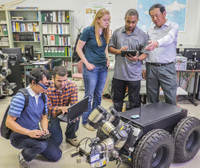
Engineering Building
Home of tutoring and career services for engineering students
The Engineering Building is the home of Spartan Engineers, who explore and learn the main fields of engineering in diversified classes and labs. There are a variety of tutoring and mentoring opportunities to assist students in targeted courses.
The College of Engineering has a well-organized pathway to introduce you to MSU, guide and nurture your academic journey and then give you the career advice and networks you’ll need to land competitive internships and jobs.
Incoming first-year students who are interested in an engineering major should check out the CoRe experience, a supportive program that helps ensure the success of engineering majors. Housed in South Neighborhood, CoRe brings real-world expertise and challenges into the classroom and residential environment, showing how important engineering is for solving global challenges.
Design Day
The College of Engineering hosts Design Day every year for students to explore different companies and present designs made in classes.
Science, Technology, Engineering and Math (STEM)
As one of the top 100 research universities in the world, MSU offers STEM students extraordinary undergraduate research opportunities and access to top-ranked faculty and world-class facilities.
Tour Stops
Click a map icon or choose from the list below


